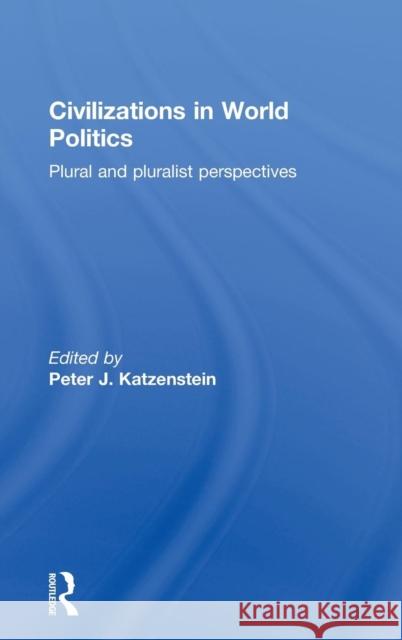Civilizations in World Politics: Plural and Pluralist Perspectives » książka
Civilizations in World Politics: Plural and Pluralist Perspectives
ISBN-13: 9780415777100 / Angielski / Twarda / 2009 / 236 str.
Civilizations in World Politics: Plural and Pluralist Perspectives
ISBN-13: 9780415777100 / Angielski / Twarda / 2009 / 236 str.
(netto: 723,00 VAT: 5%)
Najniższa cena z 30 dni: 654,86
ok. 22 dni roboczych.
Darmowa dostawa!
A highly original and readily accessible examination of the cultural dimension of international politics, this book provides a sophisticated and nuanced account of the relevance of cultural categories for the analysis of world politics. The book's analytical focus is on plural and pluralist civilizations. Civilizations exist in the plural within one civilization of modernity; and they are internally pluralist rather than unitary. The existence of plural and pluralist civilizations is reflected in transcivilizational engagements, intercivilizational encounters and, only occasionally, in civilizational clashes. Drawing on the work of Eisenstadt, Collins and Elias, Katzenstein's introduction provides a cogent and detailed alternative to Huntington's. This perspective is then developed and explored through six outstanding case studies written by leading experts in their fields. Combining contemporary and historical perspectives while addressing the civilizational politics of America, Europe, China, Japan, India and Islam, the book draws these discussions together in Patrick Jackson's theoretically informed, thematic conclusion. Featuring an exceptional line-up and representing a diversity of theoretical views within one integrative perspective, this work will be of interest to all scholars and students of international relations, sociology and political science.
An accessible, original and groundbreaking examination of the cultural dimension of international politics, this book provides a sophisticated and measured account of the relevance of cultural categories for world politics without relying on the essentialist and binary categories used in Samuel Huntington's seminal Clash of Civilizations thesis.
Peter Katzenstein's introduction provides a cogent and detailed account of analytical alternatives to Huntington and the argument is developed through a series of case studies by leading experts in their fields which focus on America, Europe, Islam, India, Japan and China.











